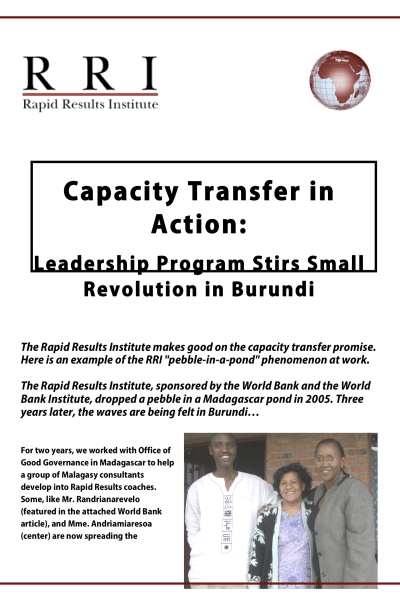
The methodology was implemented to equip operational managers to track progress and address obstacles in the efficiency of government processes.
The influence of work done in Madagascar by RE!NSTITUTE (formerly Rapid Results Institute), went on to generate an ongoing impact in Burundi, Rwanda, and other countries. The methodology was implemented to equip operational managers to track progress and address obstacles in the efficiency of government processes. The World Bank initiated a leadership development program, and in Burundi, operational managers were equipped with embracing a new approach to track progress and enact successful outcomes by increasing effectiveness and accountability. One area that was especially impacted by the methodology was teacher’s salaries. Teachers were having to wait a year before being paid, which led to frustration and demoralization. Madame Rosette of Nizigiyimana presented the problem before leadership, and with their support, the process was changed so that teachers were paid sooner. Several other projects that resulted in small revolutions included an anti-erosion project by the Environment Ministry, the Education Ministry distributing school books more efficiently, the Defense Ministry working with the Solidarity Ministry to reintegrate families living in military camps, and the Agriculture Ministry completing a tree-planting program on schedule. These shifts were made possible due to political leaders having an understanding of their importance in implementing the needed reforms. The program has been implemented in Madagascar, Morocco, and the Central African Republic and encourages a change in mentality and behavior, which helps to drive better outcomes.
